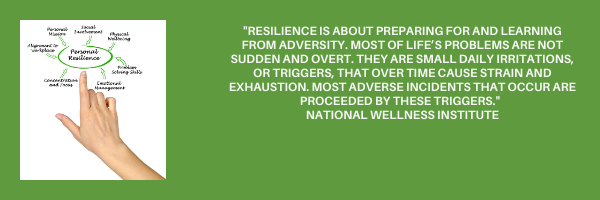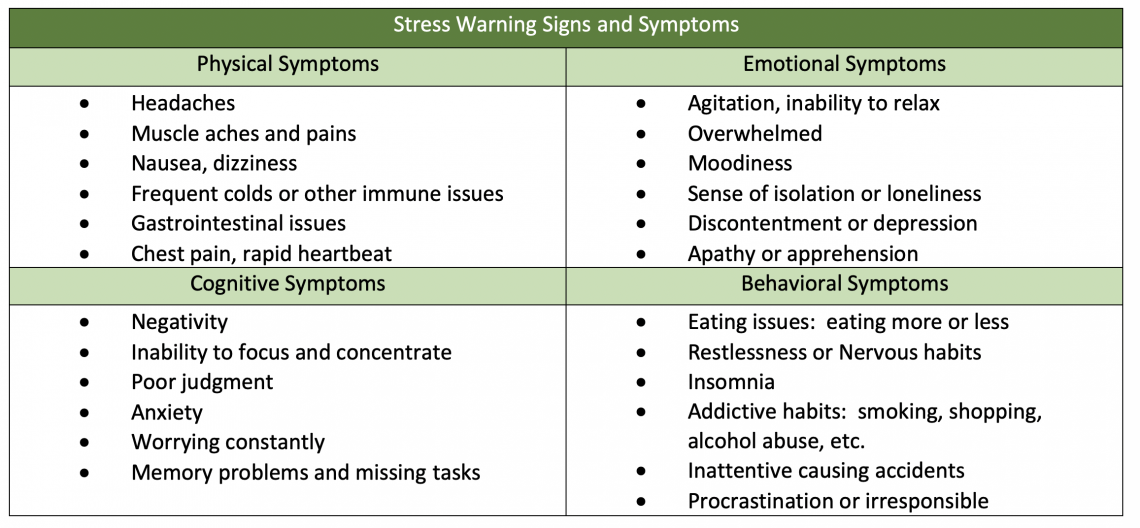If you experience any of these signs and symptoms, please know you are not alone. It is estimated that 75-90% of doctors visits in the United States are in some way related to stress. It is also important to understand that stress is not completely unavoidable, BUT we can learn to develop resilience. Developing resilience can potentially decrease the overall amount of stress experienced from a certain situation, as well as the “build-up” of multiple stressors. This, in turn, can be part of a healthy living plan to reduce negative signs and symptoms, as well as improve overall health.
The National Institute of Health outlines seven steps to managing stress and building resilience. Here is a list of the steps, but you can click the link above for additional information:
Recognize and counter signs of stress. Real-time signs may include increased heart rate, sweaty palms, shallow breathing, etc. Listen to your body, and determine which symptoms present themselves during stressful moments (short-term and long-term). Knowledge is power, and the more we can identify what goes on within, the more we can address them.
- Take time for yourself.
- Try new routines.
- Stay connected and make new friends.
- See problems through a different lens.
- Seek help with problems.
- Talk to a health professional if stress is affecting your well-being, you feel you cannot manage the stress you’re experiencing, or stress has caused you to engage in or increase substance use.
By increasing your resilience and becoming more confident in your stress management techniques, stress can begin to trigger attention and awareness to events, situations, and challenges, leading to reduced stress and a healthier lifestyle overall! According to the American Psychological Association (APA), “Psychologists define resilience as the process of adapting well in the face of adversity, trauma, tragedy, threats, or significant sources of stress—such as family and relationship problems, serious health problems, or workplace and financial stressors.”
You can be stronger than before! THRIVE not SURVIVE!
Developing resiliency looks familiar to practicing stress management techniques. Remember, it is not IF you will experience stress, it is dealing with it in a healthy manner and seeking help when you need it. The chart we posted at the beginning of this discussion indicates inappropriate behaviors, thoughts and emotions that are not helpful. Here are the suggestions the APA recommends:
- Connect with others. (Prioritize relationships, Join a support group)
- Foster Wellness. (Take care of your body, Practice mindfulness, Avoid negative outlets)
- Find purpose. (Help others -Volunteer week is this month!, Be proactive, Move toward your goals, Look for opportunities for self-discovery)
- Embrace Healthy thoughts. (Keep things in perspective, Accept change, Maintain a hopeful outlook, Learn from your past)
- Seeking help. YOUR EAP program is here to help and support you.



